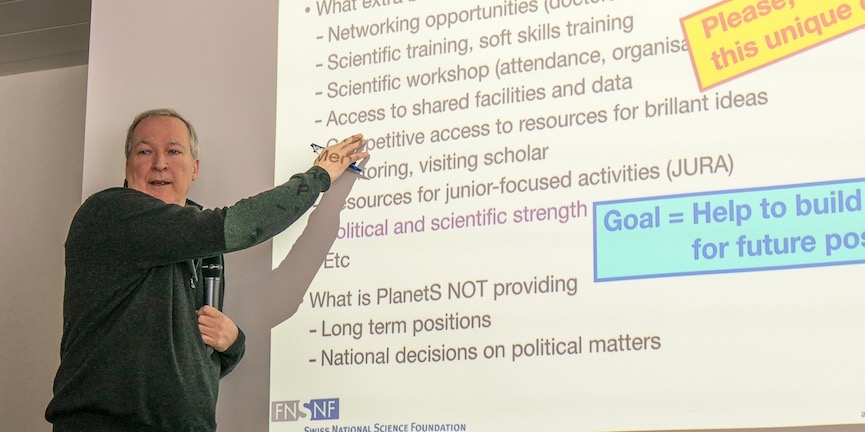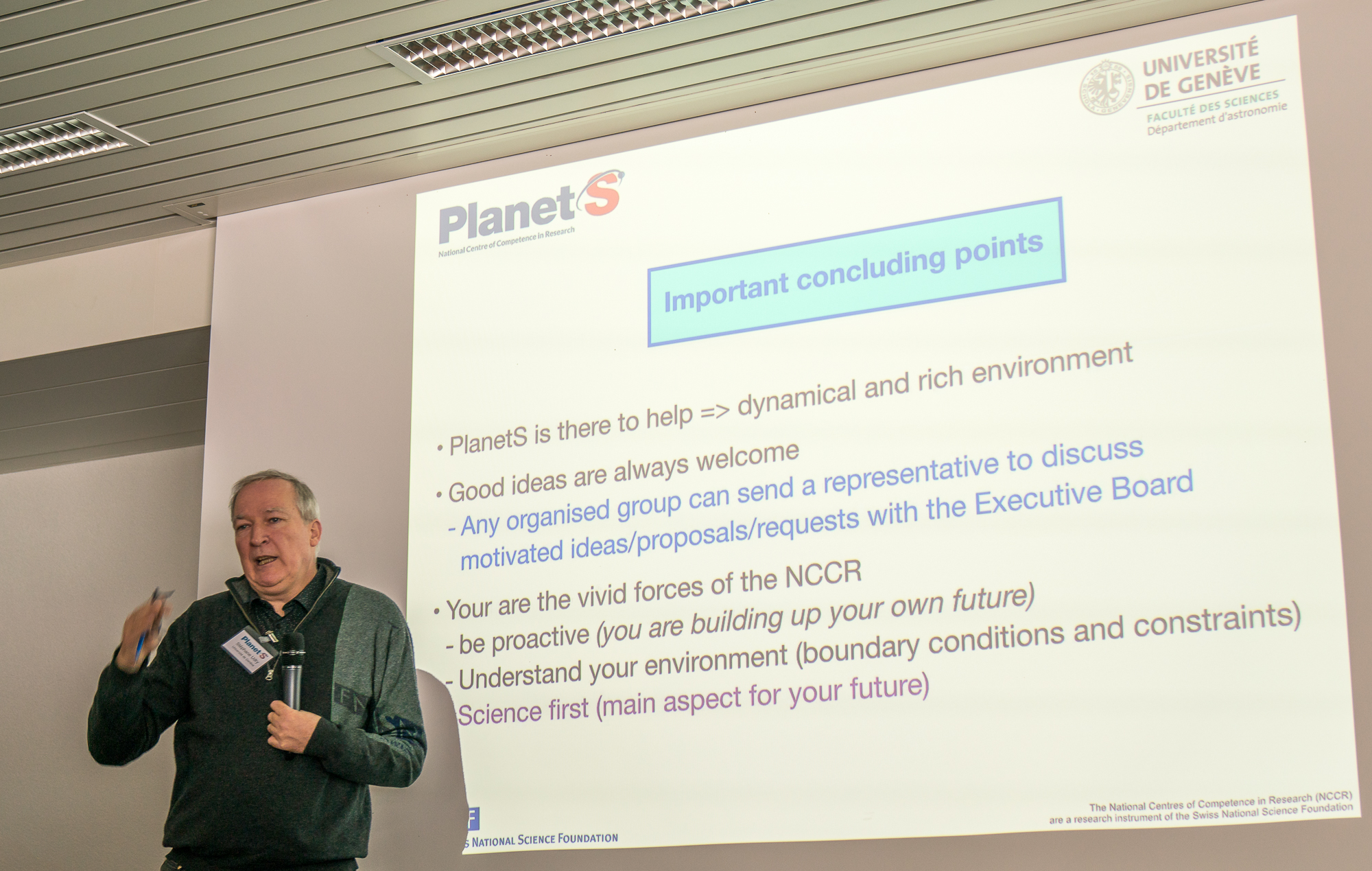A permanent position, the “Holy Grail” for young scientists

By Stéphane Udry
Four years after the start of the NCCR, questions about the future are starting to become more pressing for the young astronomers in PlanetS. During the 4th General Assembly, held once again in the beautiful setting of Grindelwald, they raised serious concerns about the future of their career. Will fixed positions be available after the doctorate or postdoc period? Will they need to change countries? Will they have to re-orientate their career and do something else? These questions were also at the heart of the intense discussions during the JURA meeting of our young colleagues. “They are legitimate, often worrisome or even distressing”, acknowledged Willy Benz who himself experienced the same uncertainty during his postdoc time in the United States, end of the eighties.

Stéphane Udry, Co-Director of PlanetS, during his presentation in Grindelwald (Photo Sylviane Blum)
The role of the NCCR in this context was also at the centre of the questioning. Why isn’t PlanetS creating more permanent positions? Why can’t PlanetS guarantee us a stable future, especially in the context of the planed creation of a Swiss Institute of Planetary Sciences (SIPS)? Although these questions may seem allowable, it shows on the other hand, a relative misunderstanding of the functioning of our institutions. Indeed, PlanetS, although larger in size and amount of funding, works like any other SNF scientific grant; financing is provided for a proposed project, for a defined amount of time, and stops at the completion of the study. The creation of permanent positions depends on the participating institutes (universities or institutes of technology) and is not under the responsibility of the NCCR. The Swiss National Science Foundation has very clear and specific rules on this subject. The NCCRs are promotional and strategic instruments expected, through their ephemeral duration, to serve as a catalyst and lead the institutions to establish strategic priorities and develop long lasting structures in the corresponding domains of activities by re-orienting available resources and/or providing new sources of funding.
The leaders of PlanetS cannot decide on the creation of fixed positions, the decision being only under the competence of the institutions, they however can push for it, providing authorized advices, compelling arguments, and an enthusiastic vision for future developments. Their role remains fundamental as well with regard to their availability to advise students in their research work, scientifically and strategically. They are also in charge of providing optimum conditions for the research, and encourage the students to seize all existing or appearing opportunities in Switzerland or internationally to advance their career. Among them, I would like to mention especially the possibilities offered by the Swiss National Science Foundation (Ambizione, professorship), the ERC grants of the European Research Council, or those proposed by the two major European organizations in astronomy, the European Space Agency (ESA) and the European Southern Observatory (ESO).
If project leaders and supervisors have obligations towards doctoral students and postdocs it goes without saying that the reciprocal is also true. I will not repeat here the obvious qualities expected from PhD students starting in research. I would like, however, to stress once more that maybe among them creativity and enthusiasm for science are the most important one. I can only encourage you to cultivate and develop them as much as possible. Your scientific achievements during your thesis and postdoc periods will be the most important assets for your future career. The NCCR is a unique and fantastic tool for initiating and encouraging careers, for establishing a professional network, consolidating national and international collaborations, and for building a strong CV. It is clear that not all the PhD and postdoc positions occupied today by young researchers in PlanetS would have been created without the NCCR. It is also likely that the beneficiaries will not all end their career in Switzerland, but it is certain that they will have benefited from the PlanetS springboard to build their future in the world of exoplanets.
PS. In order for members to better grasp the long-term vision attached to the PlanetS activities, in the next issue of the InsiderS we will describe our vision for SIPS (Swiss Institute of Planetary Science) and the way it is foreseen to run after the end of the NCCR.
Categories: Internal Newsletter
